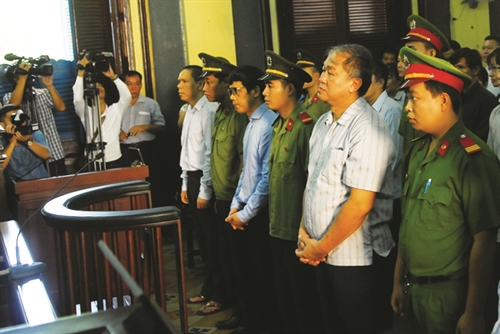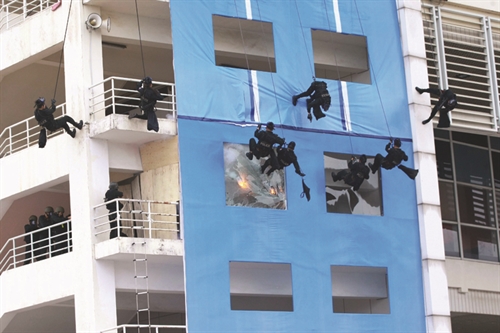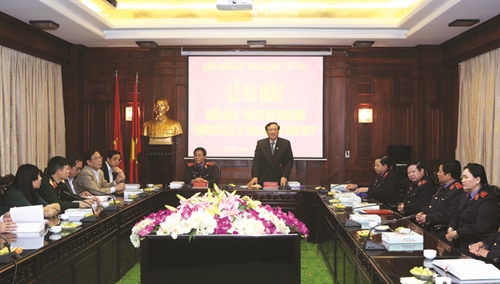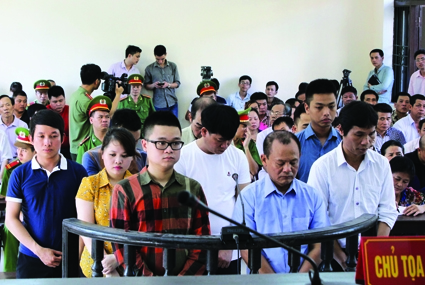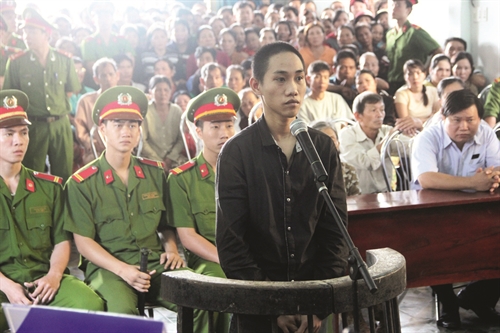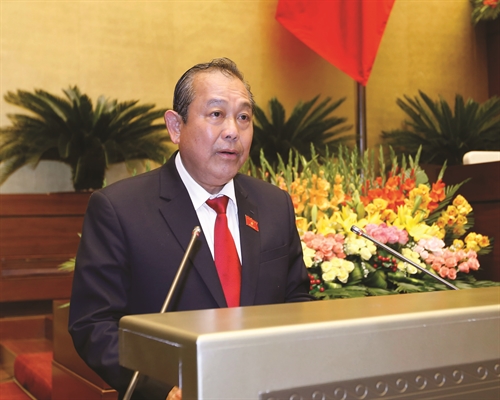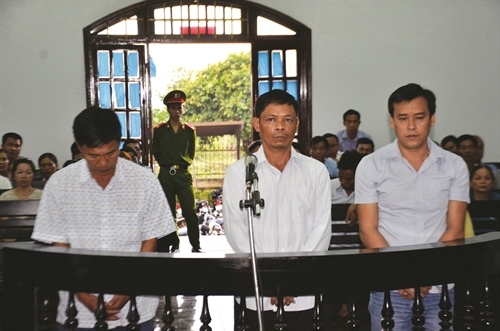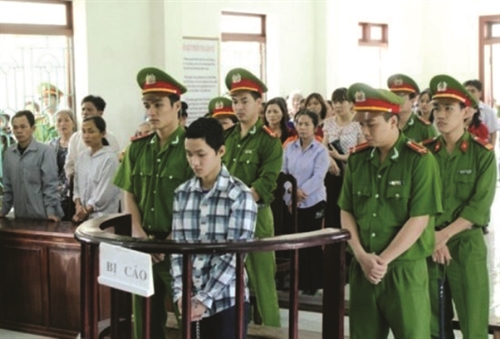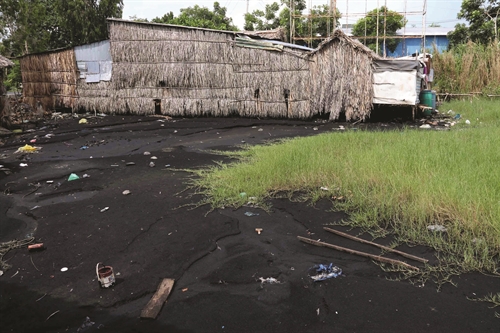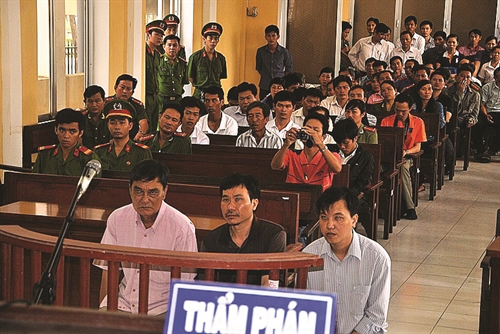The 2015 Criminal Procedure Code (the Code) contains many new provisions on the procedure applicable to persons aged under 18 years (under-18 persons), serving as the ground for building a separate juvenile justice system that is humane, friendly, respectful and protective in Vietnam. Prominently, it broadens the scope of application of this special procedure to under-18 victims and witnesses. Apart from these progressive points, the Code still has some shortcomings as pointed out by the author at the end of the article.
Le Huynh Tan Duy, LL.D.
Ho Chi Minh City University of Law
Scope and principles of application of special procedure
According to Article 413 of the Code, the special procedure is applicable not only to under-18 criminally charged persons (including arrestees, persons held in custody, the accused and defendants) but also to under-18 victims and witnesses. This procedure aims to better protect lawful rights and interests of sufferers of damage caused by crime and of persons who are aware of circumstances related to crime and create equality between under-18 criminally charged persons and victims. This is a marked progress in Vietnam’s criminal procedure law in line with the rules and requirements set out in the United Nations Guidelines on Justice in Matters involving Child Victims and Witnesses of Crime.
In particular, eight principles of conducting the criminal proceedings applicable to under-18 persons are stipulated in Article 414 of the Code, in addition to the general principles in Chapter II, which proceeding-conducting bodies and persons must obey in handling criminal cases involving under-18 persons. These principles are developed on the basis of relevant provisions of the 1989 Convention of the Rights of the Child and the UN Guidelines on Juvenile Justice. These principles guarantee the best interests, personal secrecy, the right of representatives to participate in the proceedings, and the right of under-18 persons to participate in the proceedings and express opinions.
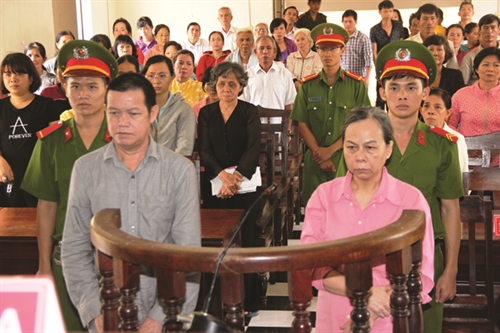 |
| Defendants Lieu and Ranh are sentenced by Tay Ninh province’s People’s Court to 12 years in prison for using the Internet to appropriate assets __Photo: Le Duc Hoanh/VNA |
Deterrent measures and coercive measures
Deterrent measures and coercive measures prescribed in the Code restrict a number of human rights and citizens’ rights of persons subject to them. For under-18 persons who have limited cognitive capacity and are physically and psychologically vulnerable, the application of deterrent measures, especially such tough measures as holding in case of emergency, arrest, custody or temporary detention, needs extreme caution. This is why the Code allows the application of these measures to under-18 criminally charged persons only in cases of extreme necessity and the application of the custody and temporary detention measures only when there are obvious grounds that supervision and other deterrent measures do not work. It further requires that the time limit for temporary detention of minors be equal to two-thirds of that applicable to persons who have attained 18 years of age (Clause 1, Article 419).
Provisions on holding of persons in case of emergency, arrest, custody and temporary detention applicable to criminally charged persons who are between full 14 years and under 16 years of age or between full 16 years and under 18 years of age have also been revised in conformity with relevant provisions in Chapter VII of the Code and Clause 2, Article 12 of the 2015 Penal Code as well as with the Convention on the Rights of the Child[1] and the United Nations Rules for the Protection of Juveniles Deprived of their Liberty[2].
Defense, investigation and trial
Under the 2003 Criminal Procedure Code, defense is compulsory for minors only when criminal proceedings are initiated against them or when the court decides to bring them to trial. Defense is not compulsory for minors who are arrested or held in custody. This limitation is overcome by the Code as it stipulates that under-18 criminally charged persons must have defense counsels appointed for them even if they, their representatives or relatives do not need help from defense counsels (Point b, Clause 1, Article 76).
In order to help under-18 criminally charged persons, victims and witnesses feel at ease and prevent violations of proceeding-conducting persons, especially investigators, the Code requires the presence of defense counsels or representatives or defenders of lawful rights and interests of such juveniles when they are interrogated. This provision marks a step forward compared to the 2003 Code which requires the presence of family representatives only during the interrogation of persons aged between full 14 and under 16 years or minors having physical or mental defects or in other cases of necessity. The Code also limits the number of times of interrogation and maximum time for each interrogation of an under-18 person[3] in order to avoid causing stress to them.
Regarding trial, Article 423 of the Code stipulates:
- A teacher or Youth Union cadre or a person who has experience and knowledge about the psychology of under-18 persons may act as an assessor (Clause 1).
- The inquiry of, and exchange of arguments with, an under-18 defendant, victim or witness at a court hearing shall be conducted in a way suitable to his/her age and development level. The courtroom shall be arranged in a way friendly and suitable to under-18 persons (Clause 4).
- For a case involving an under-18 victim or witness, the trial panel shall restrict contact between such victim or witness and the defendant when the former presents his/her testimonies at the hearing. The presiding judge of the hearing may request the representative or defender of lawful rights and interests of such victim or witness to ask questions to him/her (Clause 5).
It’s worth mentioning that the establishment of family and juvenile courts within superior, provincial- and district-level courts under the 2014 Law on People’s Courts marks another outstanding development in Vietnam’s juvenile justice to realize the above progressive provisions of the Code. This is a necessary step on the path of building a special justice system for handling matters involving under-18 persons (including under-18 offenders) in the spirit of the United Nations’ standards and orientations on juvenile justice.
Supervision and education of under-18 offenders who are exempt from penal liability
Under the 2015 Penal Code and the Code, the measures of supervision and education of under-18 offenders who are exempt from penal liability include: reprimand, community-based conciliation, and education in commune, ward or township. These measures and the measure of education at reformatory must be prioritized by the court when choosing penalties to be imposed on under-18 defendants. A criminal penalty may be imposed only when the court sees that the application of the above measures cannot meet the educational and preventive purposes. These measures may be applied at the stage of investigation, prosecution or trial of an under-18 person when he is exempt from penal liability and he or his representative so consents.
The Code’s provisions on the measures of supervision and education of under-18 offenders who are exempt from penal liability are the outcome of the selective application of the diversion measures in the restorative justice recommended by the United Nations. These measures constitute an integral part of the juvenile justice system of every state, which aims not only at avoiding stigmatization but also at bringing about good benefits to under-18 persons.
Other issues
In order to limit the application of deterrent measures to under-18 criminally charged persons while still ensuring their presence when summoned by the court, the Code permits proceeding-conducting bodies to place them under supervision by their representatives. The term “representative” is clearer and more inclusive than the term “parents or patrons” used in the 2003 Criminal Procedure Code. Representatives of an under-18 person are his at-law representatives as defined in Articles 47 and 136 of the 2015 Civil Code, including father, mother and guardian.
In addition, the Code also specifies behaviors and acts of under-18 persons[4] which cause difficulties to or obstruct the settlement of criminal cases and must be reported by their supervisors to proceeding-conducting bodies for prevention and handling. This provision aims to raise the responsibility of assigned supervisors of under-18 persons and create legal grounds for proceeding-conducting persons to choose other deterrent measures more appropriate to under-18 criminally charged persons.
New procedural rights of representatives, schools and organizations are also provided in the Code in order to enable them to protect more effectively lawful rights and interests of juveniles, including the right to denounce violations in investigation activities, take note and copy documents relating to the charges in case files after the investigation is completed, and the right to request replacement of proceeding-conducting persons in all stages of proceedings, instead of only at the stage of trial as prescribed the 2003 Criminal Procedure Code.
Some shortcomings and solutions
The identification of the age of under-18 criminally charged persons and victims has been guided in Official Letter No. 81/2002/TANDTC dated June 10, 2002, and Joint Circular No. 01/2011/TTLT-VKSNDTC-TANDTC-BCA-BTP-BLDTBXH dated July 12, 2011. Accordingly, when it is impossible to identify the exact age of an under-18 person, the last day of the last month (for the accused and defendants) or the first day of the first month (for victims) should be taken as his/her date of birth. Meanwhile, the Code provides a uniform method of age identification for both criminally charged persons and victims, which takes the first day of the first month as the date of birth. This method is understood to create equality for both parties and help avoid omitting offenders. Yet, it breaches two basic principles of criminal procedures, namely presumption of innocence and identification of facts of a criminal case. In some cases, the age of victims is one of the grounds for determining whether defendants are guilty (for example: trading in under-16 persons (Article 151), fraudulently exchanging under-1 persons (Article 152) or appropriating persons aged between full 13 and under 16 years (Article 153)), or is significant for determining crimes to be charged or penalties to be imposed (for example: rape against under-16 persons (Article 144), murder at Point b, Clause 2, Article 130)).
As far as the principle of presumption of innocence is concerned, if it is impossible to identify the exact date of birth of a victim, nobody has the right to take the first day of the first month as his date of birth as this would be unfavorable to the criminal charged person.
The principle of identification of facts of a criminal case requires proceeding-conducting bodies to clarify circumstances aggravating the penal liability of a criminally charged person and, in several cases, the age of a criminally charged person can serve as an aggravating circumstance. If lacking grounds for clarifying such circumstance, the proceeding-conducting body should draw an inference in favor of the criminally charged person. For these reasons, we propose retaining the method of identifying the age of under-18 persons provided in Official Letter No. 81 and Joint Circular No. 01 above.
The right of under-18 criminally charged persons to defense provided in the Code sees little change compared to the 2003 Code. The Code says these persons to self-represent or ask other persons to defend them. However, the word “or” may lead to a misunderstanding that a criminally charged person is not allowed to ask another person to defend him when he defends himself. That is not true to the reality. The provision should be as follows: “A criminally charged person who is aged under 18 may self-represent and ask another person to defend him/her.” Likewise, it should be provided that the representative of a criminally charged person who is aged under 18 may choose a defense counsel and provide defense by himself for such person.
In its Resolution No. 03/2004/NQ-HDTP dated October 2, 2004, the Judicial Council of the Supreme People’s Court issues a guidance saying that when and only when both the defendant and his lawful representative refuse an appointed defense counsel, such counsel can stop participating in the hearing. We think this guidance is quite reasonable as it ensures legal aid in every case, thus protecting lawful rights and interests of juvenile defendants. Regretfully, the Code takes no heed of this guidance and stipulates that the appointment of a defense counsel will be terminated when the defendant or his relative refuses his help.[5]
The Code’s provisions on taking of statements and interrogation of under-18 criminally charged persons, victims and witnesses also remain unspecific on whether or not the presence of representatives, defense counsels or defenders of lawful rights and interests of such persons is required in all times when they are interrogated or their statements are taken. In the absence of provisions on other investigation activities as identification, body search, investigative experiments involving under-18 persons, the Ministry of Public Security, Ministry of National Defense, Supreme People’s Procuracy and Supreme People’s Court should issue investigation guidelines which are friendly to under-18 persons.
Following the requirement that cases involving under-18 persons must be quickly and timely settled (Clause 7, Article 414), the time limits for initiation of criminal cases against, investigation, prosecution and trial of under-18 persons should be shorter than those applicable to adult offenders, thus avoiding stigmatization against children.
The nature of the measures of supervision and education of under-18 persons remains unclear as they have not been definitely determined as substitutes for penalties and judicial measures or diversion measures or measures applicable only to under-18 persons who are exempt from penal liability. The author supports the Ministry of Justice’s view that these measures are substitutes for penalties and judicial measures and can be applied to under-18 persons independently without the condition that these persons must be exempt from penal liability.
The Code also “overlooks” the opinion of under-18 victims and their representatives when stipulating the application of the measures of supervision and education to under-18 offenders. This runs counter to the basic principle on the use of restorative justice programs in criminal matters and should be addressed.-
